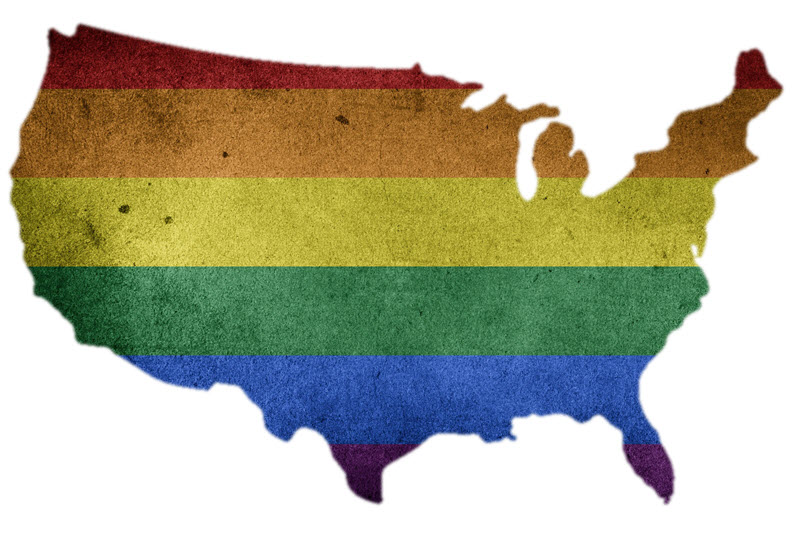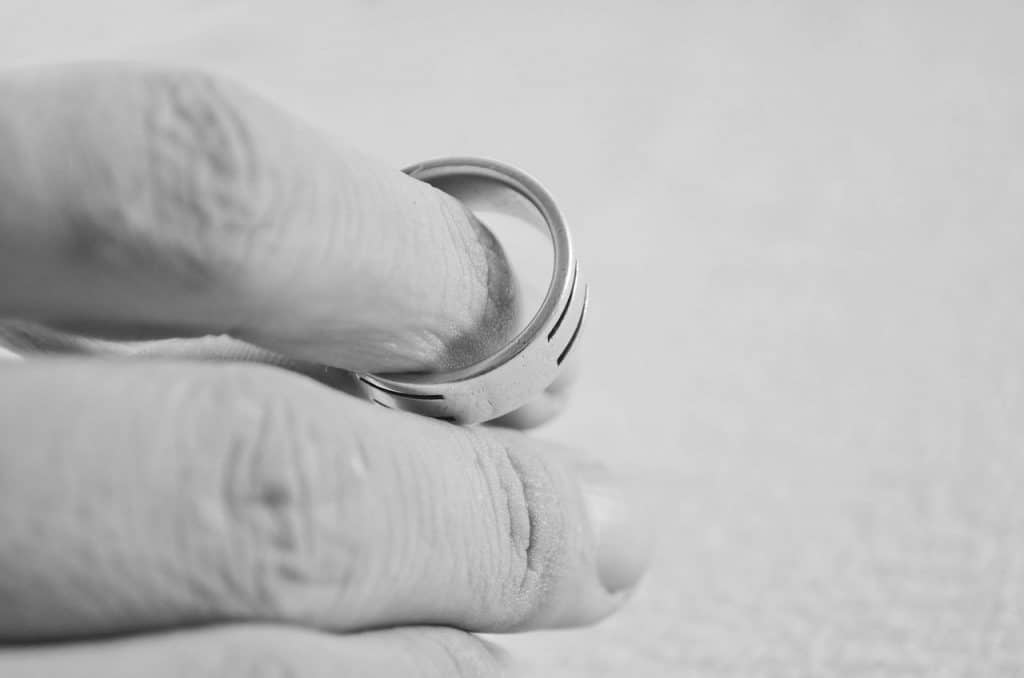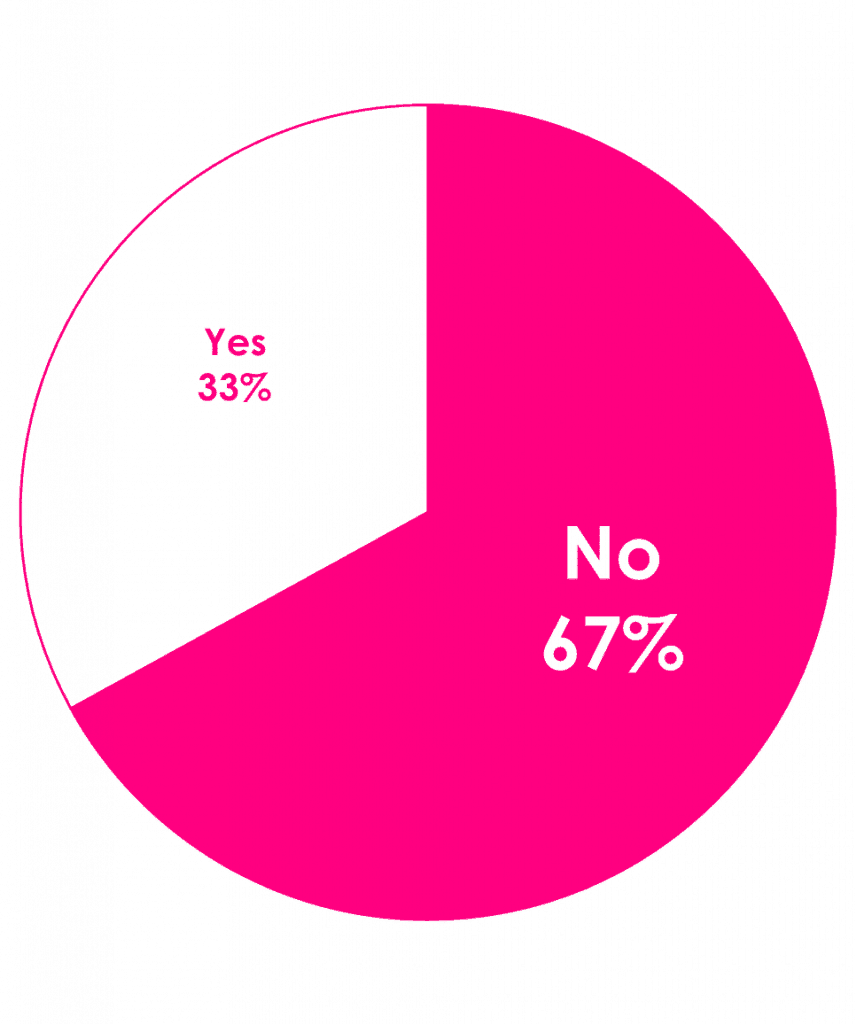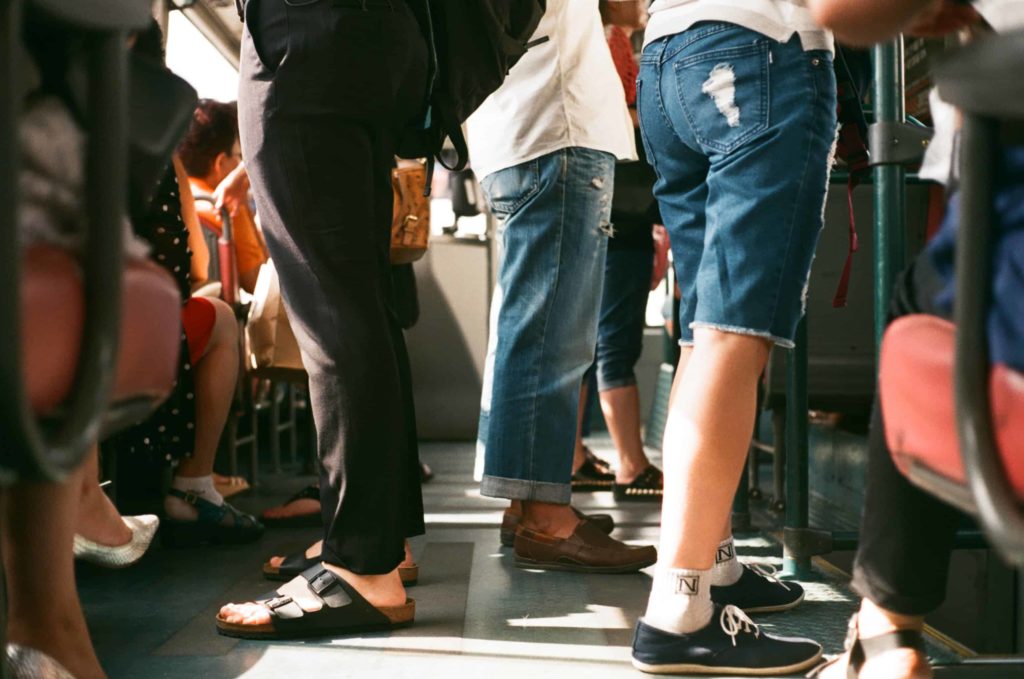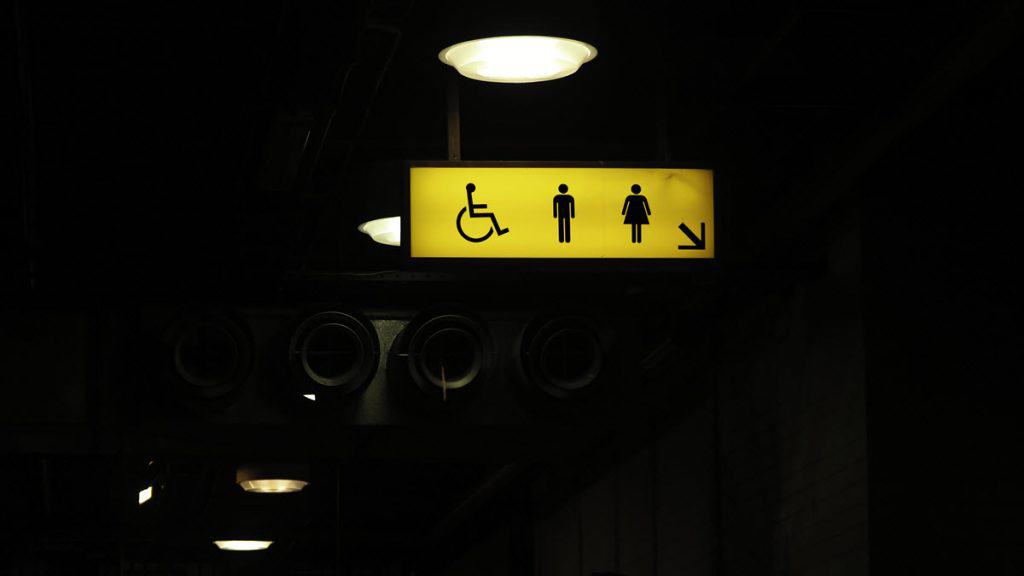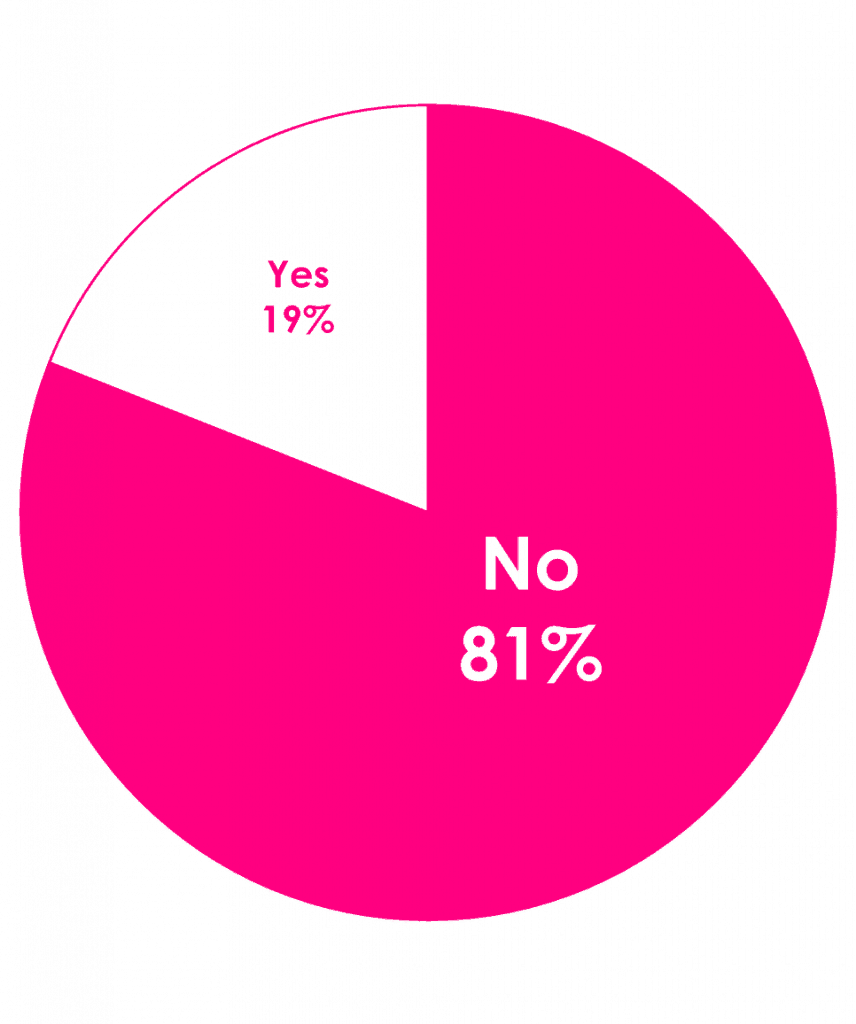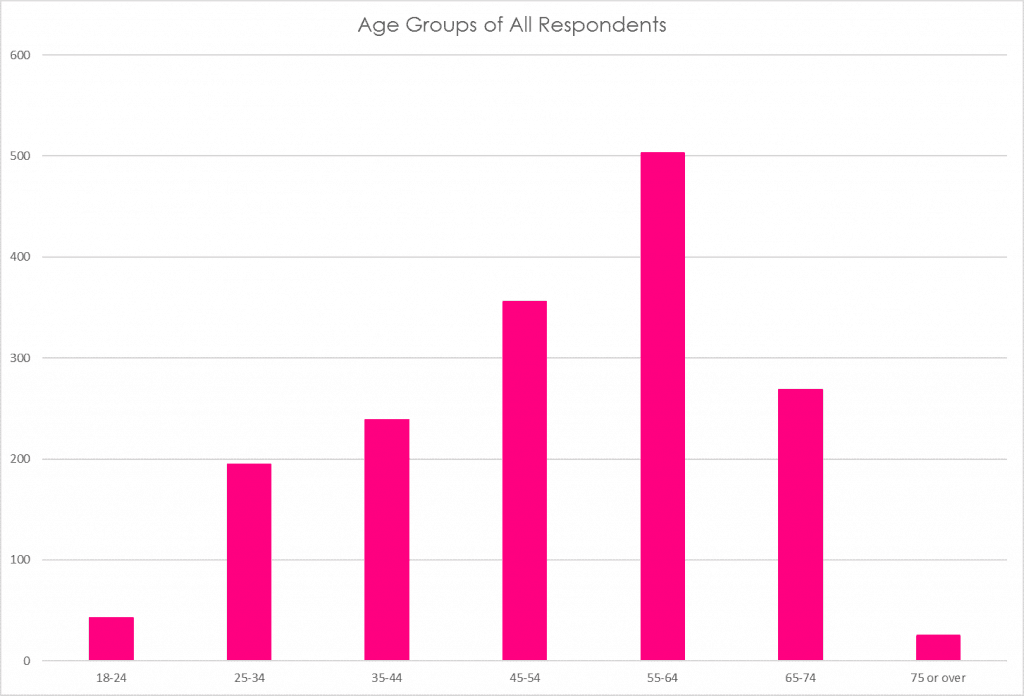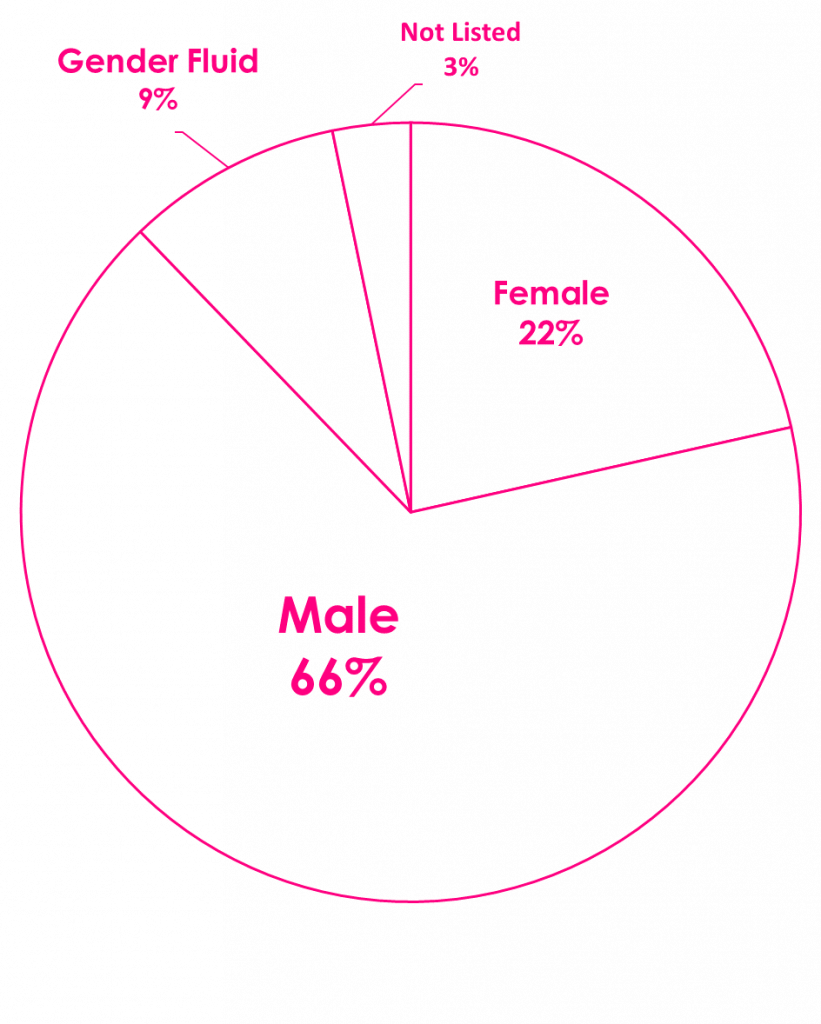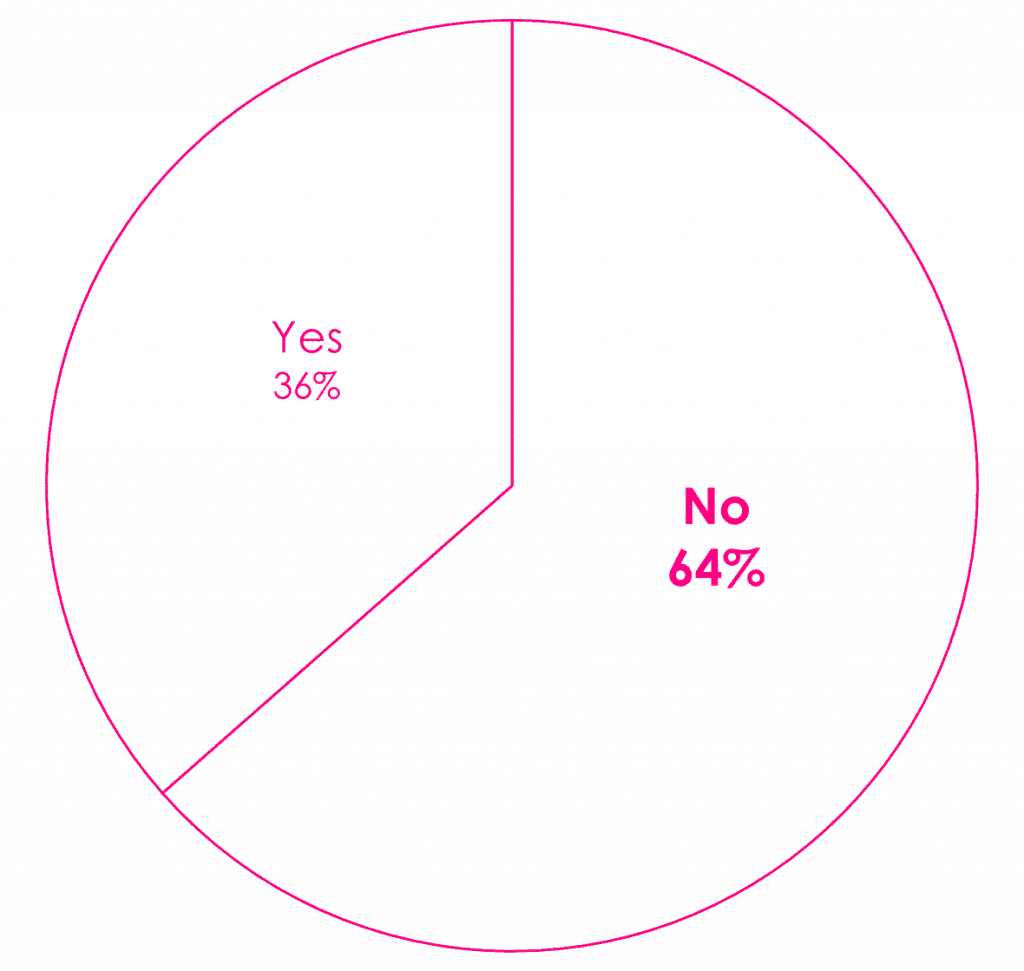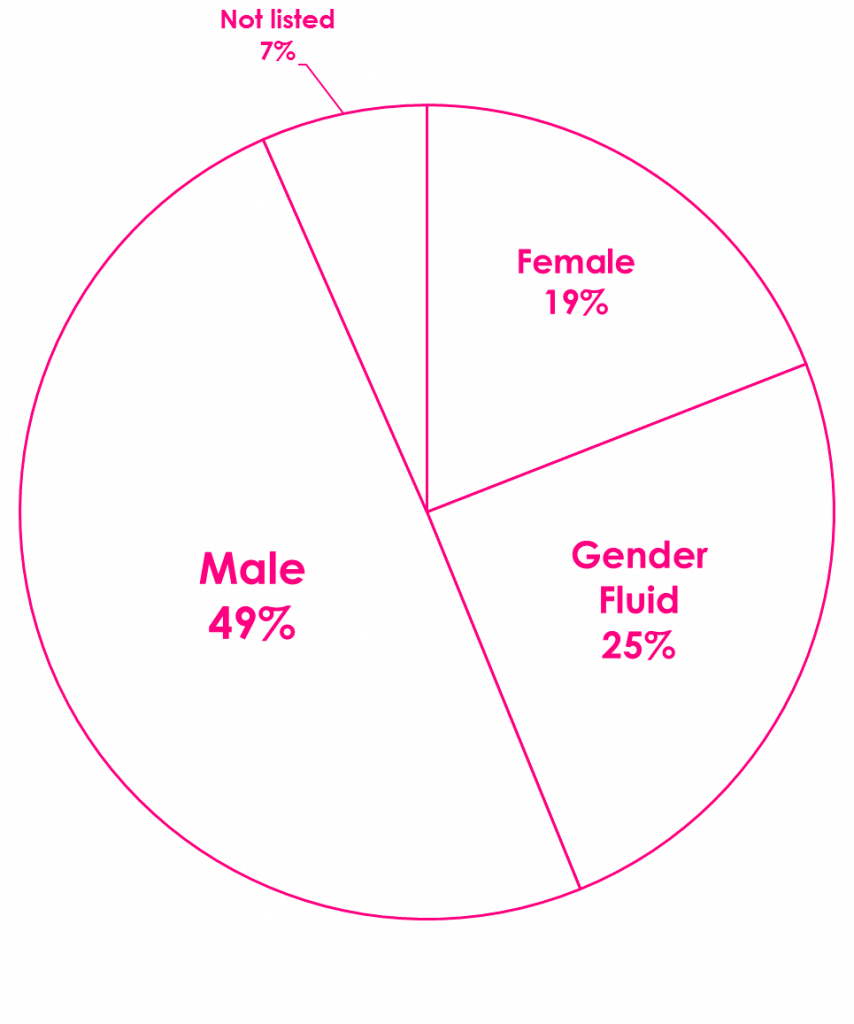We ran a transgender survey all over the country to find out about American attitudes towards transgender issues.
Over 1,500 people young and old, from every state and every walk of life, took part to paint a portrait of American attitudes and experiences.
This is what we found.
Experiences with Family and Friends
Some of the results we’ve collected are quite predictable, but they cement what we already know: that some things really need to change.
All responses were anonymous – the names used are for the purposes of this report only.
We asked our trans respondents if their relationships had suffered since coming out. Here are some of the responses we got:
Teri
“99% of my family no longer talk to me; lost my job, house and visitation with my children.”
Sinead
“Family has shunned me. I haven’t seen any of them since 1998.”
Gwen
“I haven’t spoken to my sister in 23 years. This hurts. I’ve come out at work recently, with mixed results. There is some acceptance, but I still am uneasy.”
We also asked our non-trans participants if any of their friends or family have come out as trans, and whether their relationships have suffered as a result:
Bill
“Why did he come out so late in life? When did this begin? It is embarrassing to his children.”
Jeanette
“It’s hard to accept. I love him and don’t understand why he needs to be transgender. He’s very defensive with being that way, but he is living his life happily without us.”
Clayton
“I hate it.”
The common theme is one of withdrawal: divorces, moving away from home, and slow breakdowns in communication, with some relationships even spiraling downward to the point of assault.
Have Any of Your Relationships Suffered Since Coming Out?
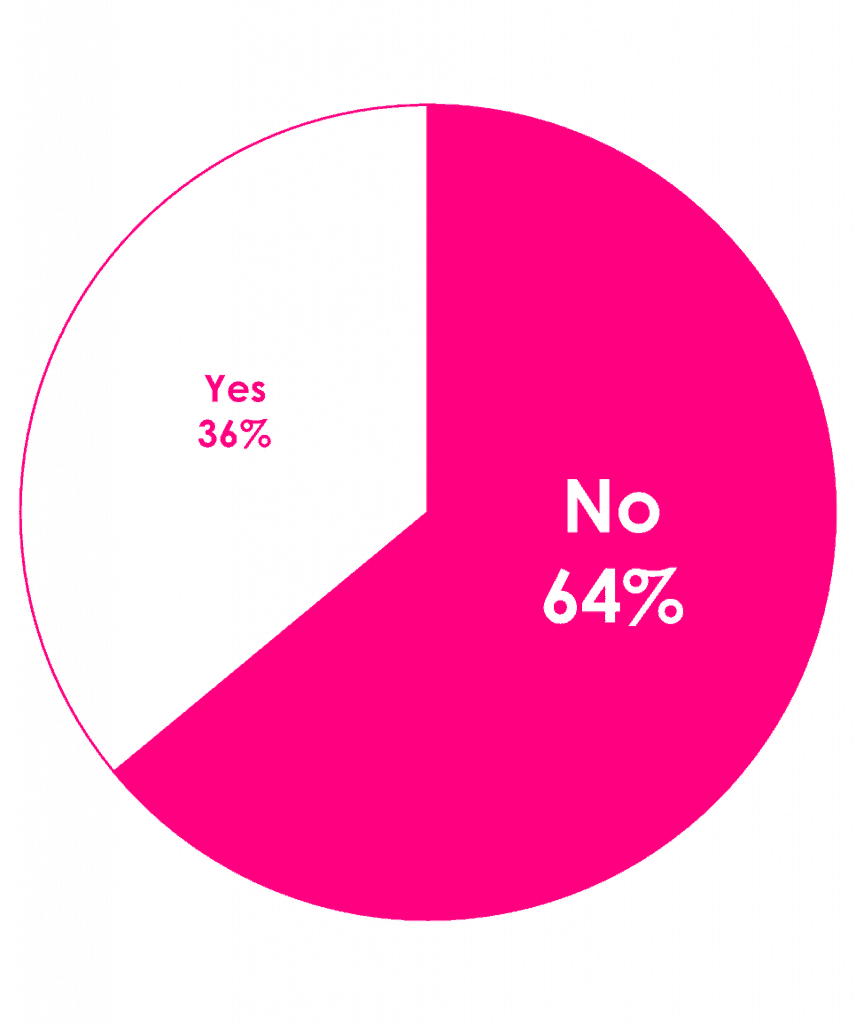
There is some good news: the majority of our transgender respondents (64%) who are out to friends and family reported that none of their relationships had suffered since coming out as transgender and that they have great support networks.
We did, however, notice that only 44% of our trans respondents are out to their friends and family, which opens up another issue: we’re still not talking enough.
Although most of the stories that came through were sad, some of our respondents had some really positive things to say:
Jamie
“it took my wife a while to come to grips with my fluidity. Now, she supports me and likes having both a husband and girlfriend”
Brianna
“Most everyone accepts me for who I am”
Jolene
“Working through it with my significant other”
Crossdressing and Coming Out
Many of our respondents identify as crossdressers (CD), and we’ve conducted interviews with CDs in the past in our piece Opening Up About Crossdressing. The people involved shared their illuminating stories and offered their wisdom on coming out.
We asked our CD respondents “are you out to friends and family?”:
The number of people open to answering this question was small, but the results are clear. Only a third of our respondents are out as CD.
Although our CD respondents who are out reported similar family struggles to our trans respondents, many reported support and even admiration for their online CD personas.
Luanne
“Thousands on YouTube have seen me, all positive.”
Jaime
“Have a supporting wife”
Experiences at Work and School
Some of our transgender respondents reported some upsetting experiences in the workplace and while at school.
James
“In high school I went through hell.”
Wendy
“A Maintenance supervisor at the Post Office said I couldn’t get a promotion because someone said I was gay. I didn’t tell him I was transgendered because the distinction would have been lost on the old boob. When I told him about the Postal Service’s nondiscrimination policy, he gave a different reason for denying the promotion.”
Charlotte
“After coming out in my past three jobs, they let me go. Now I’m upfront about it and for the past year I haven’t found a job.”
Matthew
“I was asked that I ‘refrain from this while at work.’”
A significant number of our transgender respondents reported that they have been held back in their careers, ridiculed by colleagues and bullied at school. But we received some positive workplace stories too:
Brendan
“The two girls I work with are very protective, and have adopted me as a brother. Both have gay and transgender friends and relatives. I’ve gotten resistance from my general manager, but I expected that. Once our corporate gender policy was posted where I work, he backed off.”
We asked our non-trans respondents about their experiences working and studying with transgender colleagues and classmates. Almost all expressed that they were happy working and studying alongside trans people. That’s not to say everyone is happy with it:
Elijah
“It’s sinful.”
Even though a lot of the stories we received are bleak, only 14% of our trans respondents had any negative experiences to report – bearing in mind that this number may be artificially low as most are not out to their friends, family, or work.
Experiences in Public
A large portion of our transgender respondents (over a third, in fact) report that they do not feel safe in public, and have often been made to feel unwelcome in public spaces:
Beatrice
“I have been threatened by men a couple of times to beat me and rape me.”
Denise
“Some males think I am open to having sex just because I am trans and will ask me in public.”
Kevin
“While out in public with my girlfriend a guy approached me in Walmart and started a scene. Cops were called. A second time at Walmart a guy started yelling out loud gender slurs. Everyone turned and looked at me. Cops were called.”
Crossdressing in Public
Thankfully, the majority (63%) of our CD respondents feel safe in public, with very few incidents to report, most of which are minor. Most incidents in public are reported to take the form of insults, but as one of our participants stated:
“I grew more confident, my own self-confidence grew, to the point where I don’t notice [insults]”
It’s apparent (perhaps predictably) that your location affects how safe you feel in public as a crossdresser. New York, New Jersey and California are reported as the most crossdresser-friendly states in our survey, with Texas equally welcoming, with some minor incidents reported.
Maryland, Michigan and South Carolina fared worst, with the highest ratios of negative experiences in public while dressed.
Use of Public Restrooms by Transgender People
Recent media storms have brought light to the situation, but how do people really feel?
Public restrooms are a hot topic for debate right now, with calls to change bathroom laws that would exclude transgender people.
Fewer than 10% of our transgender survey participants have experienced any issues when using public bathrooms, but when it does happen, it causes a lot of undue pain:
Kim
“I was chased out of the women’s restroom by a gang of teenage girls.”
Geraldine
“Was told I could not use the women’s facilities, security was called and I was very embarrassed and told if I did it again I would be kicked out of the motel.”
Sasha
“I feel uneasy using the ladies’ room but unsafe using the men’s.”
Jaqueline
“I waited for a bathroom to be ‘all clear’ and used it privately, came out and was reprimanded by a patron. It was not pleasant and I could not even respond beyond ‘sorry’. He said that I was a pervert who could cause harm and discomfort in the girls.”
Non-Trans Views on Bathroom Bills
We asked our non-trans participants how they feel about bathroom bills. While the overwhelming majority of people we asked do not support bills that restrict transgender people, the minority in favor were quite vocal as to why:
“Don’t think young children should be exposed.”
“Don’t want to use bathroom with a woman that was a man.”
“YOU were born a way for a reason IT’S not NATURAL.”
“Gender shouldn’t be a choice.”
“God does not make mistakes.”
“If a man doesn’t make the commitment and get the male parts removed then he isn’t transgender.”
“If they were born a man then inside they are still men.”
“The small percentage of transgendered citizens in this country should not dictate that others must be comfortable with their choice of bathroom. I think that if a majority of women are uncomfortable sharing their bathrooms with transgendered individuals, then they should have it forced on them. Too many people forget that while trying to accommodate transgendered individuals, we are impinging on the rights of women.”
“Why how do I know that man doesn’t just want to come in and peep at women or molest children? It’s happening already.”
There are a lot more responses like this, primarily driven by fear of an ‘other,’ or an unknown.
But one thing is made very clear by the data – this is a very small minority (albeit a very vocal one). Our non-trans respondents overwhelmingly do not support restrictive bathroom bills:
Political Spectrum and Attitudes – All Respondents
We asked everyone taking part how they feel about transgender people and issues, as well as their political stance. Here’s how it played out:
- Very conservative 7.31%
- Conservative 29.99%
- Center-right 17.47%
- Center-left 12.93%
- Liberal 23.22%
- Very liberal 9.07%
Here’s the split for non-trans participants:
- Very conservative 8.59%
- Conservative 32.40
- Center-right 17.70%
- Center-left 12.22%
- Liberal 21.95%
- Very liberal 7.14%
And for our trans participants:
- Very conservative 4.89%
- Conservative 25.44%
- Center-right 17.03%
- Center-left 14.29%
- Liberal 25.64%
- Very liberal 12.72%
Attitudes to Transgender People – Non-Trans Respondents
We asked our non-trans participants to tell us how they view trans people and issues:
- Accepting 78.97%
- Tolerant 10.26%
- Neutral 7.59%
- Intolerant 1.03%
- Other 2.15%
We asked everybody if transgender people are fairly represented by the mainstream media. A huge 74% of all respondents felt that they are not. Among trans-only respondents, this rose to 80%.
An Overview of Our Respondents
Where They’re From – All Respondents
Our survey was taken all across the country, with the highest levels of participation coming from the following states:
- California 8.6%
- New York 8.4%
- Florida 5.7%
- Pennsylvania 5.7%
- Texas 5.5%
- New Jersey 5.2%
- Illinois 4.0%
- Massachusetts 3.9%
- Ohio 3.7%
- Michigan 3.5%
Age and Demographics – All Respondents
The largest age group of our respondents is aged 55–64, with significant numbers in other age groups.
Gender and Gender Identity – All Respondents
Our respondents predominantly identify as male. Those whose gender was not listed reported a range of gender identities, including current flux, in transition and experiencing both genders at once.
Our Transgender Respondents
Do You Identify as Transgender?
When asked if they identify as transgender, here’s how our sample responded:
Over a third of our respondents identify as transgender, with the following gender identity breakdown:
And there we have it. While the overwhelming sentiment in America seems to be one of positivity, there is still a huge gap in understanding and acceptance.
While we’re still striving for equality and inclusivity, it’s clear that there are still roadblocks ahead – but we’re ready to face them, one at a time.
For our full spreadsheet of results, get in touch with us.

